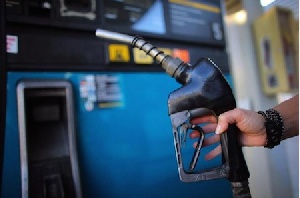The rising cost of living is set to get worse this month, especially towards Christmas.
This is because importers have hinted of increases in the prices of goods following the introduction of the Value Added Tax (VAT), also known as special petroleum tax of GH¢0.45 per litre, representing 17.5%, on the Ex-Depot Price of petroleum products.
Importers and Exporters Association of Ghana and the Ghana Food and Beverages Importers Association of Ghana disclosed this to The Finder in an interview.
Mr John Awuni, Corporate Affairs Director of Finatrade Group of Companies, who expressed the views of the Ghana Food and Beverages Importers Association and the Chief Executive Officer of the Importers and Exporters Association of Ghana, Mr Samson Asaki, attributed the price increases to hike in transport fares.
According to them, following the increase in fuel prices as a result of the 17.5% VAT imposed on petroleum products, haulage trucks have increased their charges.
They explained that importers are overburdened with taxes and have no choice than to pass on the increases to consumers.
Mr Awuni and Mr Asaki said imports for 2014 have dropped by 30%, compared to last year, due to too many taxes and duties.
They said importers and wholesale companies are not placing orders for new stocks for Christmas because there is low demand.
Mr Awuni said they cannot feel the Christmas fever, and were only praying that the old stock locked up in warehouses due to poor demand can be cleared.
The Special Import Levy was imposed in 2013 as part of measures to increase revenue generation to support social services and infrastructure programmes outlined in the 2013 budget.
Mr Awuni noted that the expectation of importers was that the special levy would be scrapped to provide room for some marginal decreases in prices.
However, he said the announcement by government to extend the special levy to 2017, coupled with falling cedi, increases in utility prices and fuel, means prices of goods can only keep rising.
On his part, Mr Asaki said the special levy, which ranges between 1 and 2%, depending on the item being cleared at the port, is crippling businesses, and its removal would bring relief to importers as well as exporters.
He said the introduction of the additional 2.5% VAT, which came into effect on January 8, 2014, should have replaced the special import levy.
He explained that Ghanaians living outside the country who usually come home during Christmas with goods to sell for the period have decided not to do so this time round following the many taxes and levies.
Mr Asaki noted that the high charges of terminal operators and shipping lines have also compounded the situation.
He appealed to the Ghana Shippers Authority (GSA) to focus more attention on addressing challenges facing importers and exporters.
On plans to establish an Exim Bank to promote exports, he said that was not needed, adding that the Ghana Exports Promotion Authority (GEPA) and the Export Trade, Agricultural and Industrial Development Fund (EDAIF) should rather be strengthened to deliver on their mandate.
General News of Tuesday, 2 December 2014
Source: The Finder

















